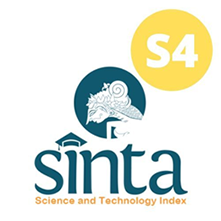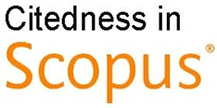Design of Ambulatory Blood Pressure Monitoring for IOT-Based Hypertension Patients
Abstract
Ambulatory blood pressure monitoring or ABPM is a non-invasive method to determine the average blood pressure for at least 24 hours, not only when medical checkup. ABPM is often found in cardiac examinations and monitoring of catlab preoperative patients. This study aims to analyze the performance of the ABPM tool that can measure blood pressure continuously with a specified time interval connected to IoT so that can make it easier to get test results. The contribution of this research is a 24-hour monitoring system with delivery via IoT. The experiment was conducted 10 times with Prosim comparison at each point to assess the level of reading accuracy and effectiveness of IoT viewers. At 120/80 mmHg systole accuracy 98.42%, diastole 97.25%. While at 150/100 mmHg systole accuracy is 99.67%, Diastole is 98.1%. At 200/160 mmHg point Systole accuracy 98.35%, Diastole 98.25%. The SPSS test states that the reading data collection is acceptable and has an average commensurate with the test. The difference in viewer time on the TFT and IoT layers is 3.8 seconds and the test data value is 0% loss. The results from making this module, concluding by utilizing the sensor MPX5050 obtained sufficient accuracy, the use of ESP32 as a microcontroller processes the sensor readings which will be converted into systole-diastole values and displays on IoT so that it can slightly help analyze the patient's condition, and this module can read the simulator tool well at pressures of 120/80 mmHg, 150/100 mmHg, and 200/160 mmHg. The device showed good accuracy and reliability in measuring blood pressure at different levels compared to a vital signs simulator. The device can be used for 24-hour monitoring of hypertension patients and provide useful information for diagnosis and treatment.

This work is licensed under a Creative Commons Attribution-ShareAlike 4.0 International License.
Authors who publish with this journal agree to the following terms:
- Authors retain copyright and grant the journal right of first publication with the work simultaneously licensed under a Creative Commons Attribution License that allows others to share the work with an acknowledgement of the work's authorship and initial publication in this journal.
- Authors are able to enter into separate, additional contractual arrangements for the non-exclusive distribution of the journal's published version of the work (e.g., post it to an institutional repository or publish it in a book), with an acknowledgement of its initial publication in this journal.
- Authors are permitted and encouraged to post their work online (e.g., in institutional repositories or on their website) prior to and during the submission process, as it can lead to productive exchanges, as well as earlier and greater citation of published work (See The Effect of Open Access).











